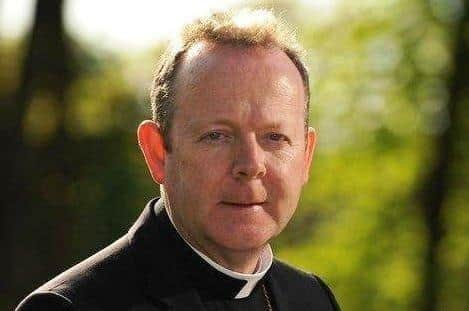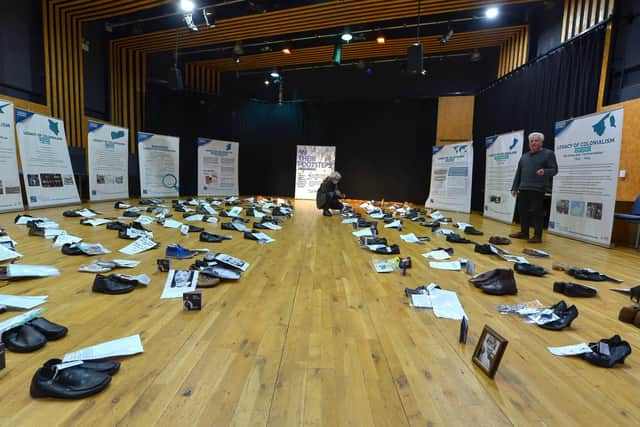Bloody Sunday 50: ‘Even though I was only ten, I had a sense of the awful calumny’ - Archbishop Eamon Martin
and live on Freeview channel 276
A renowned English writer, who died, coincidentally, in 1972, once wrote “the past is a foreign country; they do things differently there.”
As I reflect on the tragedy of our Bloody Sunday, I would like to believe that that particular past is over and gone, but sadly I cannot. Twenty-eight peaceful people were shot on that day - fourteen of them fatally - and the horror inflicted on our community remains unresolved. Yes, unresolved for us, but also for many others who have suffered during our years of conflict and throughout the world where avoidable death and destruction continues. In the words of a prayer I learned as a child growing up in Derry, ‘Lord Jesus, we long for justice and peace; send us your gift of peace’.
Advertisement
Hide AdAdvertisement
Hide AdThe horror inflicted on Derry then, which was described coldly as ‘21 soldiers firing 108 live rounds at gunmen and bombers’, has thankfully been challenged and exposed. The dignity and determination of the families, friends and neighbours of those who were cut down on that day remains a guiding light in a world where innocent human life continues to be destroyed or cheapened routinely. Their witness, and the message of the Gospel of Life, challenges us to keep asking: Can we do things differently today?


The shocked silence which fell on Derry when the shooting stopped around 4.40 pm that day was compounded by the deliberate silence of governments and politicians who wilfully ignored the truth. This is no way for society to face the reality of injustice. Later - much later - Lord Saville would conclude that the shooting and killing of these civilians, who had not posed any kind of threat, was ‘unjustified and unjustifiable’. Saville found that soldiers, as a justification for their actions, ‘knowingly put forward false accounts’ about shooting at only armed targets. Our people bled and died on our streets and the state accepted the version of events put forward by those who had perpetrated the atrocity.
Even though I was only ten years old I had a sense of the awful calumny that was happening. We were asked to bring to school our family’s copies of the ‘Derry Journal’ so that the truth could be sent out and shared around the world.
The pain of loss suffered by the Bloody Sunday families continued to be sharpened for many more years by blind eyes and deaf ears and the deliberate concealment of the truth.
Advertisement
Hide AdAdvertisement
Hide AdWe cannot tolerate such a response today. It is time to do things differently. No line can easily be drawn on our past. Much work is still to be done in building a unity of hearts and minds towards a shared vision for our future on this island. But lasting peace, healing and reconciliation can only flourish in the light of knowledge, justice and the sharing of hidden truths about the past. Some still have information locked down inside them that is capable of unlocking the anguish and uncertainty for others who have suffered for too long now.


It is shallow to think of peace solely as an end to war; it is about much more. Peace from poverty; peace from hunger; peace for those living on the streets or in camps for migrants; peace for those denied the truth, closure and justice both here and around the world; this is the kind of deep peace we should all strive for today. It is the peace of Christ. Such a gift of peace would be fitting reward for those who marched on that awful day in 1972 - some of them never to march again. May they rest in the peace of the Lord, and may we ‘do things differently’ in order to live in that same peace.
Archbishop Eamon Martin is Archbishop of Armagh and Primate of All Ireland